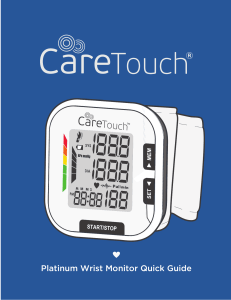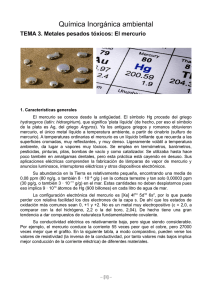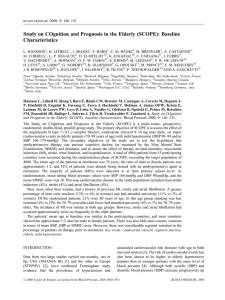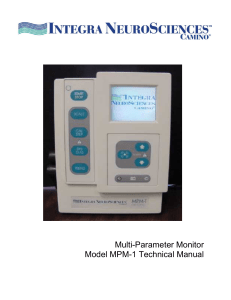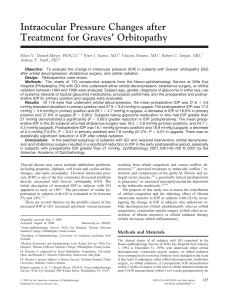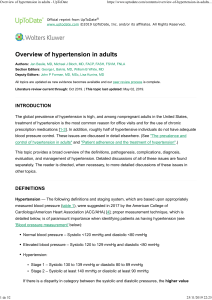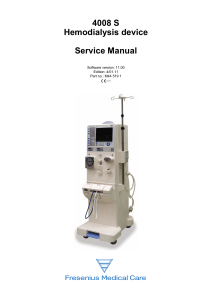Explicit Equation to Calculate the Liquid-Vapour Equilibrium
Anuncio
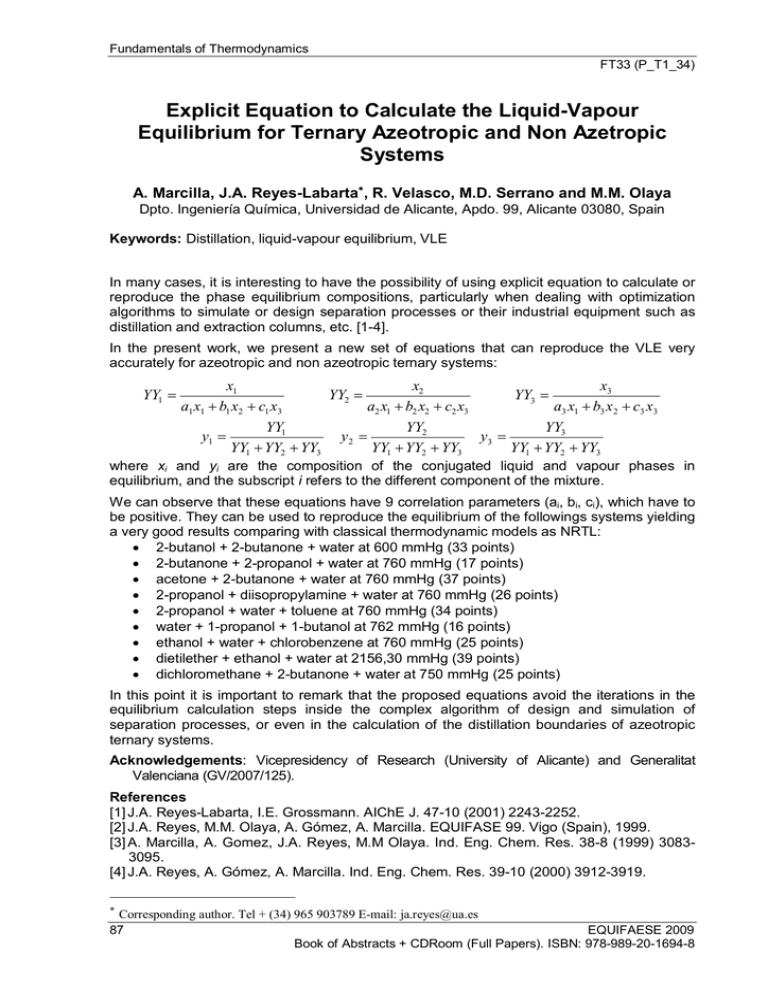
Fundamentals of Thermodynamics FT33 (P_T1_34) Explicit Equation to Calculate the Liquid-Vapour Equilibrium for Ternary Azeotropic and Non Azetropic Systems A. Marcilla, J.A. Reyes-Labarta∗ , R. Velasco, M.D. Serrano and M.M. Olaya Dpto. Ingeniería Química, Universidad de Alicante, Apdo. 99, Alicante 03080, Spain Keywords: Distillation, liquid-vapour equilibrium, VLE In many cases, it is interesting to have the possibility of using explicit equation to calculate or reproduce the phase equilibrium compositions, particularly when dealing with optimization algorithms to simulate or design separation processes or their industrial equipment such as distillation and extraction columns, etc. [1-4]. In the present work, we present a new set of equations that can reproduce the VLE very accurately for azeotropic and non azeotropic ternary systems: YY1 = x3 x1 x2 YY3 = YY2 = a1 x1 + b1 x2 + c1 x3 a2 x1 + b2 x2 + c2 x3 a3 x1 + b3 x 2 + c3 x3 YY1 YY2 YY3 y1 = y2 = y3 = YY1 + YY2 + YY3 YY1 + YY2 + YY3 YY1 + YY2 + YY3 where xi and yi are the composition of the conjugated liquid and vapour phases in equilibrium, and the subscript i refers to the different component of the mixture. We can observe that these equations have 9 correlation parameters (ai, bi, ci), which have to be positive. They can be used to reproduce the equilibrium of the followings systems yielding a very good results comparing with classical thermodynamic models as NRTL: • 2-butanol + 2-butanone + water at 600 mmHg (33 points) • 2-butanone + 2-propanol + water at 760 mmHg (17 points) • acetone + 2-butanone + water at 760 mmHg (37 points) • 2-propanol + diisopropylamine + water at 760 mmHg (26 points) • 2-propanol + water + toluene at 760 mmHg (34 points) • water + 1-propanol + 1-butanol at 762 mmHg (16 points) • ethanol + water + chlorobenzene at 760 mmHg (25 points) • dietilether + ethanol + water at 2156,30 mmHg (39 points) • dichloromethane + 2-butanone + water at 750 mmHg (25 points) In this point it is important to remark that the proposed equations avoid the iterations in the equilibrium calculation steps inside the complex algorithm of design and simulation of separation processes, or even in the calculation of the distillation boundaries of azeotropic ternary systems. Acknowledgements: Vicepresidency of Research (University of Alicante) and Generalitat Valenciana (GV/2007/125). References [1] J.A. Reyes-Labarta, I.E. Grossmann. AIChE J. 47-10 (2001) 2243-2252. [2] J.A. Reyes, M.M. Olaya, A. Gómez, A. Marcilla. EQUIFASE 99. Vigo (Spain), 1999. [3] A. Marcilla, A. Gomez, J.A. Reyes, M.M Olaya. Ind. Eng. Chem. Res. 38-8 (1999) 30833095. [4] J.A. Reyes, A. Gómez, A. Marcilla. Ind. Eng. Chem. Res. 39-10 (2000) 3912-3919. ∗ Corresponding author. Tel + (34) 965 903789 E-mail: ja.reyes@ua.es 87 EQUIFAESE 2009 Book of Abstracts + CDRoom (Full Papers). ISBN: 978-989-20-1694-8 Fundamentals of Thermodynamics FT33 (P_T1_34) 87 EQUIFAESE 2009 Book of Abstracts + CDRoom (Full Papers). ISBN: 978-989-20-1694-8
